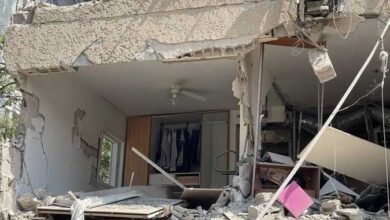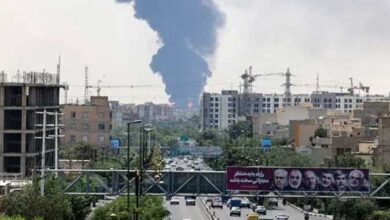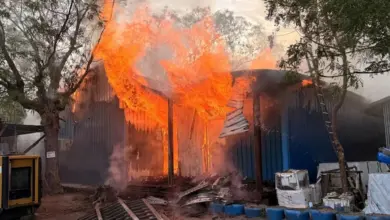Moscow–The bloodiest attack on Moscow in at least six years has confounded Russia’s attempt to cauterize an Islamist insurgency spreading across the North Caucasus region.
Striking at rush hour in the heart of the Russian capital, the suicide bombers could open a new front in the Kremlin’s "silent war" with insurgents who dream of creating a pan-Caucasus, sharia-based state along Russia’s southern flank.
Russia says the bombings, which killed 39 people, were carried out by a group with links to the North Caucasus, giving credibility to statements by Chechen rebel leader Doku Umarov that he would attack Russian cities and energy pipelines.
"The silent war of the North Caucasus has come to the streets of Moscow," said Grigory Shvedov, editor-in-chief of the ‘Caucasian Knot’ www.kavkaz-uzel.ru Internet news agency.
"I fear that unfortunately there will be more of these terrorist attacks both against Moscow and against Russian cities as the insurgents take their war outside the borders of the North Caucasus to the Russian heartland."
Many analysts and rights activists say a war in the republics of Chechnya, Ingushetia and Dagestan has been largely ignored by domestic voters and the wider world.
No group has yet claimed responsibility for the attack, but if the bombings are the work of militants from the North Caucasus then they could propel the insurgency to the heart of the political agenda ahead of the 2012 president election.
"The authorities over past years had lulled Russians into thinking that terrorism was localized in the North Caucasus and that it did not threaten run-of-the-mill citizens," Russia’s respected business daily Vedomosti said in an editorial.
"Revenge for the Caucasus," read its front page headline.
Prime Minister Vladimir Putin, who many Russians say is the country’s paramount leader despite stepping down as Kremlin chief in May 2008, cemented his power in 1999 by launching a war to crush Chechen separatism.
Putin backs Chechen leader Ramzan Kadyrov, whom rights groups accuse of driving recruits into the hands of the rebels with heavy-handed tactics by law enforcement agencies.
Those tactics, analysts say, have failed to deal with the radicalization of the insurgency which has mutated into a campaign for holy war against Russia from its beginning as a grassroots separatist movement.
Chechen rebel leader Umarov, who calls himself the "Emir of the Caucasus Emirate," said in an interview last month on the unofficial Islamist website kavkazcenter.com that he would bring war from the Caucasus to Russian cities.
He has also vowed to attack economic infrastructure such as the pipelines which feed the $1.3 trillion economy of the world’s biggest energy producer.
Umarov’s group has claimed responsibility for a train bombing between Moscow and St Petersburg that killed 26 people last November, plus a suicide bomb attack in June which left the leader of Ingushetia, Yunus-Bek Yevkurov, fighting for his life, and an August Siberian dam disaster that killed 75.
Local leaders say the radicalization is being fueled by a potent mixture of clan feuds, poverty, Islamism and abductions by the law enforcement agencies.
President Dmitry Medvedev, who warned last November that the growing strife in the region was the biggest single domestic problem, has repeatedly called for easing the region’s crippling poverty but unemployment remains as high as 40 percent of the economically active population in regions such as Ingushetia.
Kremlin officials say privately that the North Caucasus is a cross that Russia’s elite has to bear, though they admit endemic corruption among officials has bred poverty and driven youths into the hands of Islamist rebels.
Attacks have soared in the past year in the North Caucasus, with hundreds of casualties reported on the Caucasian Knot Web site which tracks violence in the region.
It said 280 people were killed in Chechnya by bombings in 2009, 319 in Ingushetia and 263 in Dagestan. A total of 167 bombings were recorded in the three republics last year.
Russia has so far focused on killing rebel leaders, such as Alexander Tikhomirov, an accomplished cleric who renamed himself Said Buryatsky after his native East Siberian Buryatia region, who was killed in March.
But analysts said the militant groups have created special structures to cope with the dangers of losing a leader, mirroring militant groups in the Middle East and Afghanistan.
Russian Foreign Minister Sergei Larvov said he did not exclude foreign involvement in Monday’s metro attacks.
Some point to the "Riyadus-Salikhin Reconnaissance and Sabotage Battalion of Chechen Martyrs," a highly disciplined group specializing in suicide attacks that was listed by the US State Department as a terrorist group in 2003.
The group was involved in the Dubrovka Theater siege in 2002 and in the 2004 Beslan school hostage crisis, when at least 334 people died, half of them children.
The Battalion of Martyrs was once under the command of Chechen warlord Shamil Basayev, but survived his death in 2006, and is still active. Its command structure is cloudy, but some say it reports to Umarov.
"If the organizers of these bombs were from the North Caucasus, then I would suspect Riyadus Salikhin was behind this," said Shvedov from Caucasian Knot.




